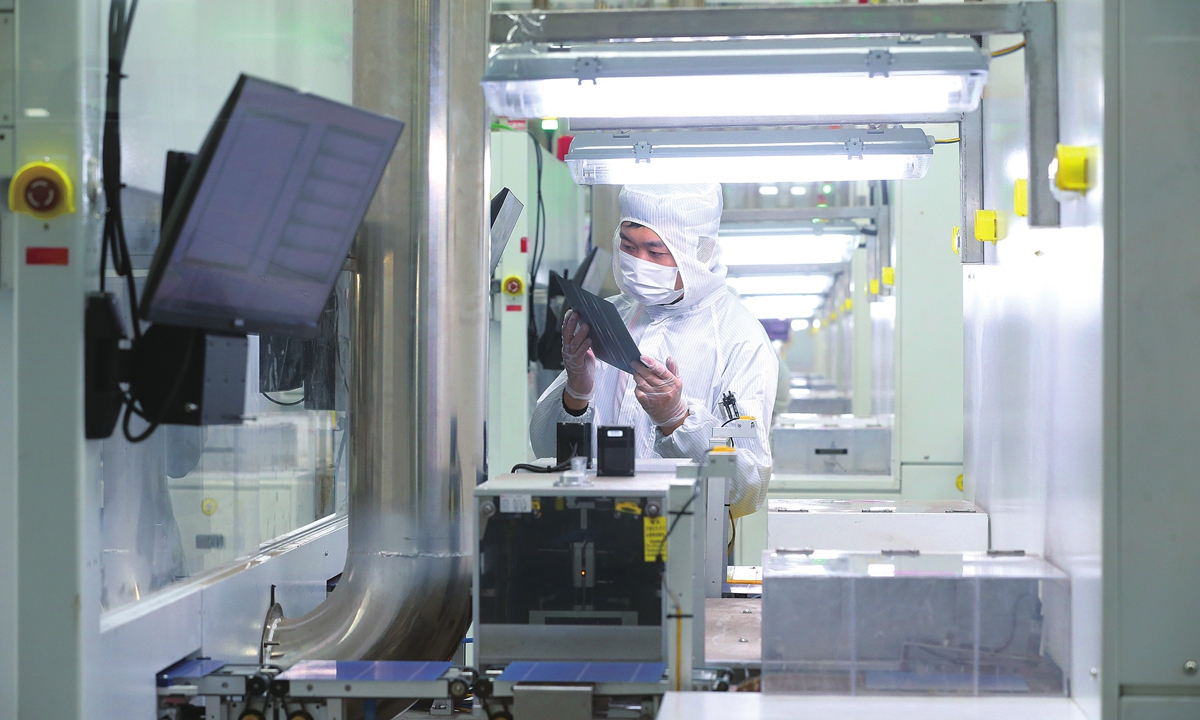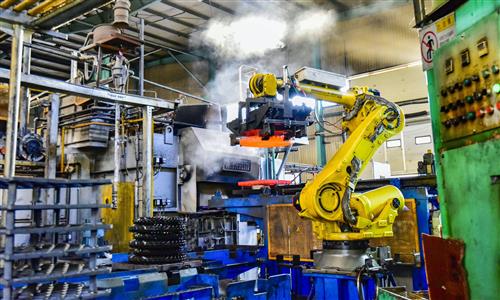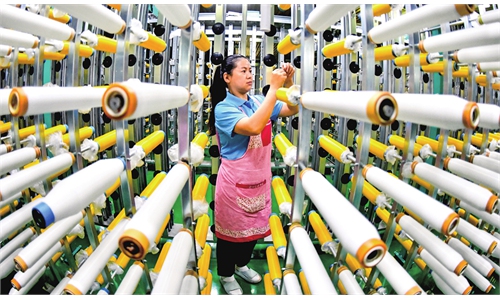China's manufacturing PMI edges down in November, constrained by weak market demand

A worker processes solar cell wafers for export at a photovoltaic (PV) module manufacturing enterprise in Meishan city, Southwest China's Sichuan Province on November 20, 2023. The city has formed a PV industry chain of silicon wafers, batteries and modules. The products are exported to Germany, France and other countries and regions. Photo: VCG
China's manufacturing activities eased in November as the sector has entered a traditionally lackluster season. Weak market demand, a major factor restraining the momentum of an economic recovery, continued to bite, analysts said. But with stimulus measures gradually taking effect, the manufacturing sector is expected to improve.
The official manufacturing purchasing managers' index (PMI) came in at 49.4 in November, down from 49.5 the previous month, missing market expectations, data from the National Bureau of Statistics (NBS) showed on Thursday.
A reading below 50 indicates a contraction, while one above 50 indicates expansion.
The production sub-index was 50.7 in November, down 0.2 points from the previous month, while the new orders index fell slightly to 49.4 from 49.5 percent in October. Weak market demand remains the primary problem for the manufacturing sector, according to the survey.
There were two bright points, however. The expectation index for production and operating activity came in at 55.8, up 0.2 points from October, showing that most manufacturers are optimistic about market prospects.
New driving forces in the manufacturing sector have increased rapidly. The high-tech manufacturing PMI stood at 51.2, an increase of 2.0 points from October, returning to expansion territory.
Meanwhile, the equipment manufacturing PMI stood at 51.6, up 0.9 points, indicating that industry expansion has accelerated.
"Despite the recent economic recovery being a bit difficult, the process of economic transformation and upgrading is ongoing," Wang Qing, chief macroeconomic analyst at Golden Credit Rating International, told the Global Times on Thursday.
Recent stimulus measures will support a moderate recovery of domestic market demand. But there are uncertainties about whether weak areas such as the private economy and the real estate sector can stabilize soon, and there's heavy downward pressure on external demand, which will curtail the recovery of the manufacturing industry, said Wu Chaoming, a deputy head of the Chasing Research Institute.
China's central bank and other government agencies on Monday announced a package of 25 points to step up financial support for the private sector, including efforts to diversify financing channels for private businesses.
Chinese regulators have reportedly asked state-owned lenders to ramp up financing support for property developers.
"There is a certain internal drive for recovery in household consumption, and macroeconomic policies are targeted at stabilizing growth, including the issuance of an additional 1 trillion yuan ($139.3 billion) special-purpose treasury bonds and large-scale issuance of special-purpose refinancing bonds.
In October, the sixth session of the Standing Committee of the 14th National People's Congress approved the issuance of additional 1 trillion yuan in special treasury notes. The funds will be used in eight specific areas, including post-flood reconstruction and high-standard farmland reconstruction.
The services PMI for November stood at 50.2, down 0.4 points from October, the NBS said.
Global Times


